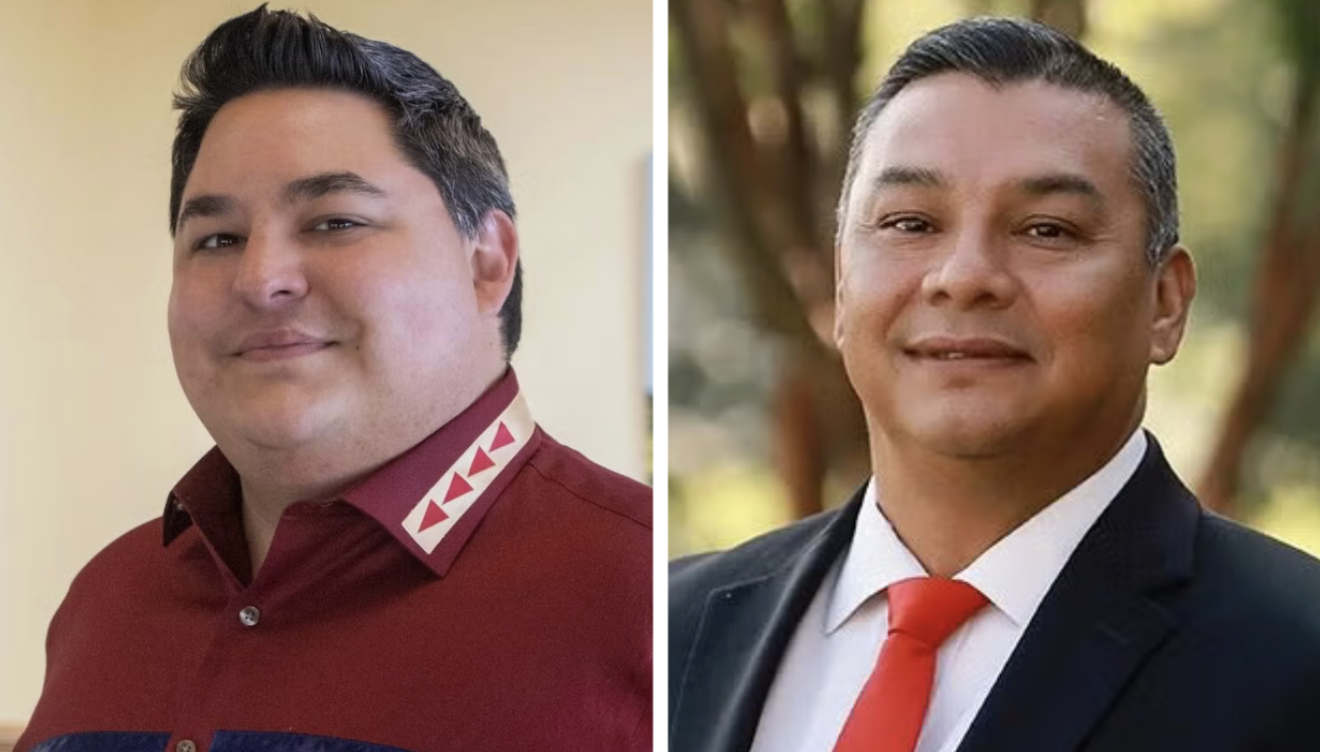
- Details
- By Kaili Berg
The Aspen Institute has announced its 2025 Ascend Fellows, a group of 20 leaders from across the country who are advancing prosperity and well-being for children and families.
Among the new fellows are two Indigenous educators leading tribal colleges: Dr. Brad Hall of the Blackfeet Nation and Dr. Monte Randall of the Muscogee (Creek) Nation.
“These 20 leaders have bold ideas that are ready for a quantum leap not just individually, but as a collective,” Anne Mosle, vice president of the Aspen Institute and founder and executive director of Ascend said in a statement. “Our country and communities are hungry for leaders like them, ones they can trust and who offer – and deliver – innovative solutions and a path forward.”
Dr. Hall, president of Blackfeet Community College in Browning, Montana, is a historian, researcher, and educational leader raised on the Blackfeet Reservation.
After earning degrees in history and education from Montana State University-Bozeman, he completed a doctorate in Educational Leadership in 2018. He has served in multiple roles at Blackfeet Community College, including as Institutional Researcher and now president since 2022.
Hall also chaired the Blackfeet Nation Institutional Review Board from 2017 to 2023, ensuring that research on tribal lands benefitted the community. He has long championed culturally based education programs across Montana.
Dr. Randall, president of the College of the Muscogee Nation in Okmulgee, Oklahoma, is a citizen of the Muscogee (Creek) Nation and a member of the Apekv-Tvlledegv Tribal Town and Deer Clan.
A veteran of the U.S. Navy and Oklahoma Army National Guard, he holds degrees from Haskell Indian Nations University, the University of Oklahoma, and a doctorate in educational leadership from Oral Roberts University.
His scholarship has focused on cultural learning and healing from historical trauma among Native students. At CMN, he has expanded leadership programs, strengthened student success initiatives, and launched a major effort to revitalize the Mvskoke language.
The 2025 Ascend Fellows represent 14 states and Washington, D.C., bringing diverse perspectives from higher education, government, health care, and community organizations.
For the first time, fellows were selected in states including Montana, Kentucky, and North Carolina. With this cohort, the fellowship now includes 182 leaders nationwide.
More Stories Like This
Bard College Center for Indigenous Studies (CfIS) Hosts Annual Symposium With Keynote Speaker Miranda Belarde-Lewis on March 9–10American Indian College Fund Announces Spring 2026 Faculty Fellow Cohort
Navajo Nation Signs $19 Million Diné Higher Education Grant Fund Act into Law
Dr. Shelly C. Lowe to Be Inaugurated as IAIA President March 26–27
Tlingit Language Courses Expand for Students to Learn With Families At-Home
Help us defend tribal sovereignty.
At Native News Online, our mission is rooted in telling the stories that strengthen sovereignty and uplift Indigenous voices — not just at year’s end, but every single day.
Because of your generosity last year, we were able to keep our reporters on the ground in tribal communities, at national gatherings and in the halls of Congress — covering the issues that matter most to Indian Country: sovereignty, culture, education, health and economic opportunity.
That support sustained us through a tough year in 2025. Now, as we look to the year ahead, we need your help right now to ensure warrior journalism remains strong — reporting that defends tribal sovereignty, amplifies Native truth, and holds power accountable.
 The stakes couldn't be higher. Your support keeps Native voices heard, Native stories told and Native sovereignty defended.
The stakes couldn't be higher. Your support keeps Native voices heard, Native stories told and Native sovereignty defended.
Stand with Warrior Journalism today.
Levi Rickert (Potawatomi), Editor & Publisher


